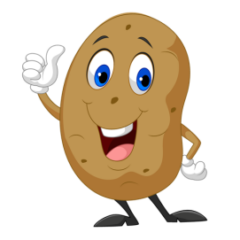“All Tennessee Whiskies are Bourbons”. I saw this statement made the other day in one of the Facebook Bourbon info groups and would like to address this. When a US produced spirit is labeled Whiskey, it means it meets the standards for federal code class type 140 – Whisky. Note the TTB always uses Whisky but Whisky/Whiskey spellings are interchangeable. Class type 140 is a very broad whiskey definition. Requirements for Class type 140 are the spirit must be made from grain, distilled below 190 proof, and bottled at not less than 80 proof. Following federal codes for whisky, it must have contact with an oak container, be it new or used, charred or not. Up to 2.5 % coloring/flavoring/blending materials may be added without disclosure. If a spirit is produced completely in one state then that producer may put the state in front of the product type on the label. Therefore, a distillery in TN could produce TN Whiskey that was distilled to 189 proof, aged in used barrels and have 2.5% flavorings added to it. This would be TN Whiskey, but it is a far cry from Bourbon. So, the statement of “All Tennessee Whiskies are Bourbons” is false.
Confusing matters, somewhat, is the fact Tennessee passed its own law defining TN Whiskey in 2013. While TN law does not override federal code, it does establish their own standard. It mostly follows the federal code definition of Bourbon but adds “Filtered through maple charcoal prior to aging” as a step. It also gives a legally dubious exception for this step that only applies to one distillery in TN. However, nothing in the TN code prevents the use of 2.5% flavorings. So even under this TN law, one could make TN whiskey that has 2.5% flavorings that would still not meet the legal definition of Bourbon.
This brings us to the never ending online debate of “Is Jack Daniels a Bourbon?” Jack Daniels is labeled as TN Whiskey. It meets all the enacted TN whiskey laws and JD claims they add no flavorings or coloring. The step of filtering through maple charcoal prior to aging is referred to as the Lincoln County process. Those who say JD is not a bourbon usually point to the Lincoln County process as the step that prevents it as being such. The other camp points out nothing in the federal code prevents Bourbon from employing charcoal filtering. In fact, many bourbons state on the label that they are charcoal filtered. In general, charcoal filtering removes compounds and does not them add them. I fall into the camp that since nothing is being added JD could be called Bourbon if they so elected. I rarely see asked but I have often pondered if JD could be called Straight Bourbon? It’s aged 4 years so it meets the age requirement but then it gets a little more complicated.
There is a section in federal code that discusses when formulas are needed for spirits that have been changed through a process that alters their character, composition or class type. Straight Bourbon never requires a formula. 27 CFR 5.27 (c) any filtering or stabilizing process which results in a product which does not possess the taste, aroma, and characteristics generally attributed to that class or type of distilled spirits; and, in the case of straight whisky, results in the removal of more than 15 percent of the fixed acids, volatile acids, esters, soluble solids, or higher alcohols, or more than 25 percent of the soluble color. Does the Lincoln County process, which is a filtering process used by JD, remove more than 15% of these? If the answer is yes, then JD is not Straight Bourbon. Since JD elects not to call their whiskey Bourbon or Straight Bourbon we may never know the answer to this.
Update – Jeff Selgren said I should credit him as the person that stated incorrectly that “All Tennessee Whiskey is Bourbon”, so Jeff so referenced.

A very clear and educational explanation. Thanks.
The thing that fascinates me is why this is such a hot topic among bourbon drinkers. Do you have an answer to that?
Just like any other demographic, the ranks of bourbon drinkers include their fair share of pedantic dumbasses who like to argue based on nothing more than their own ignorance.
JD is such a huge brand so if you drink at all odds are you have probably tried it and therefore have an opinion on topic. Or that’s my guess.